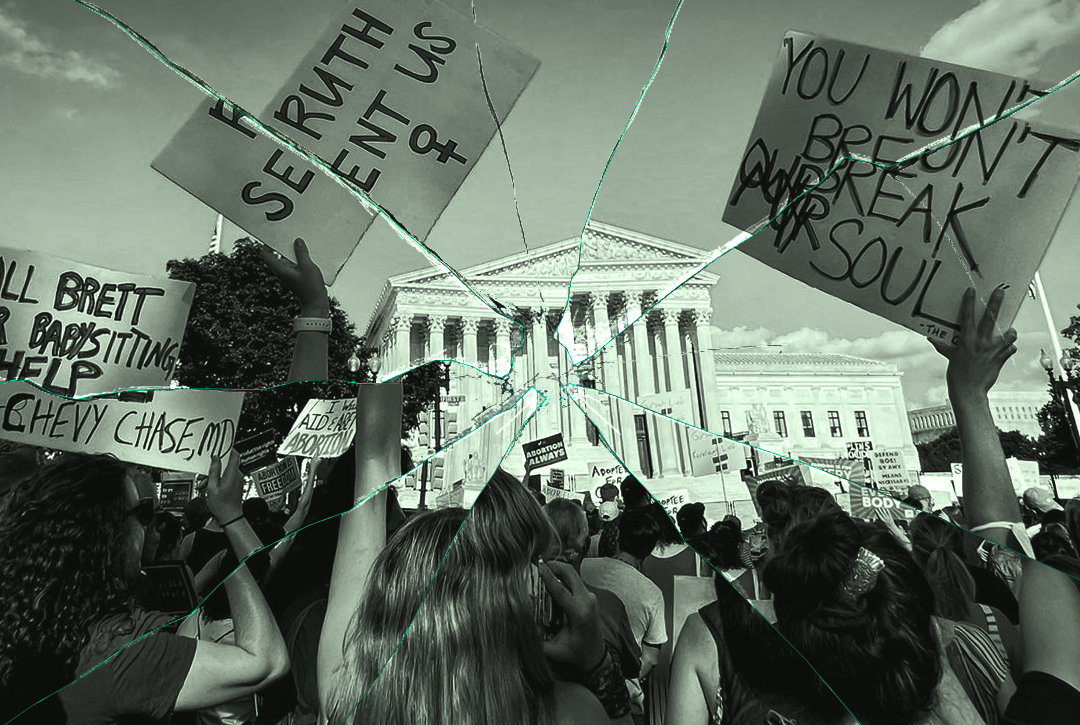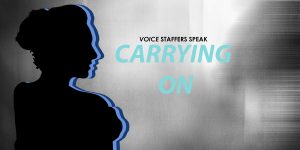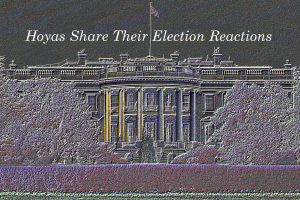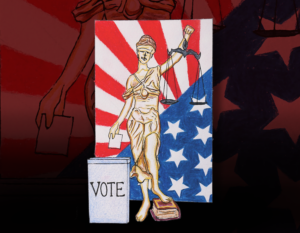“If I wanted the government in my uterus, I’d fuck a Senator.”
Among the droves of protestors demonstrating against the reversal of Roe v. Wade, it wasn’t unusual to come across such signs. Sure, these slogans might elicit a few dry laughs and garner more than a few retweets, but when held without consideration toward the far-reaching implications of abortion bans, they hint at a glaring lack of intersectionality within the pro-choice movement.
While abortion bans undeniably affect every person capable of becoming pregnant, they disproportionately affect some groups of people—notably Black, Indigenous, and people of color, LGBTQ+ and disabled people, and people from low-income backgrounds—because systemic inequalities permeate every aspect of society, including abortion bans. Consequently, abortion bans must be recognized for what they are: an attack on racial and economic justice.
A lot of popular messaging—like the aforementioned pro-choice slogans—don’t actually resonate with those most vulnerable. Rhetoric that merely targets the patriarchy assumes the patriarchy is the sole obstacle to widespread abortion access, neglecting other firmly embedded structural obstacles like racism and classism. Other slogans that claim to speak for “all women” exclude trans and non-binary people from the pro-choice movement when they, too, have abortions. In an effort to herd the masses behind the banner of reproductive justice, the pro-choice movement has been reduced to catchy rhetoric and generalized messaging that homogenizes the experiences of abortion seekers when their (incredibly personal) experiences can be—and tend to be—anything but similar.
To begin with, a higher percentage of abortion seekers in the U.S. are people of color. The Center of Disease Control and Prevention reported that the abortion rate for Black women was almost four times that of white women in 2019. This is primarily because communities of color, especially Black and Latinx communities, encounter lower access to quality contraceptives and sex education. In addition, Black women have a maternal mortality rate some three times higher than white women. Other marginalized communities, such as Indigenous people, trans people, low-income people, and immigrants, have also struggled to access inclusive healthcare.
As a result, slogans that try to be quirky or funny can counterintuitively subvert their objectives, as they downplay the gravity of the impact of abortion bans and make a spectacle of a critical fight. In the case of some protesters, particularly those who don’t face discrimination within the healthcare system, their ignorance and insensitivity are obscene—whether it is wearing pink pussy hats or dressing up in costumes from The Handmaid’s Tale. For many Black, Indigenous, incarcerated, undocumented, disabled, and low-income people, the dystopian world painted in The Handmaid’s Tale is their lived reality—not some far-fetched nightmarish scenario.
Likewise, advocacy of mandatory vasectomies is reminiscent of eugenic laws aimed at selectively breeding people of certain desired traits. Even if it is to prove a point, this move centers whiteness and ableism, overlooking documented experiences of forced sterilization imposed on Black, Indigenous, and disabled people. Not to mention, mandatory vasectomies would be the opposite of bodily autonomy and everything the reproductive justice movement stands for.
One reason that explains the exclusion of marginalized communities from prevailing abortion narratives is that the pro-choice movement has been saturated with white feminism. Social justice movements historically gain traction when it becomes clear that the issues they represent concern white people. For example, the modern LGBTQ+ movement has—to a degree—been whitewashed, with Pride month being an increasingly corporatized celebration that disregards real challenges confronted by queer people of color. In regard to the pro-choice movement, white women have dominated the discourse around reproductive justice. With their experiences frequently seen as the default of all abortion seekers, it comes as no surprise that many marginalized communities feel estranged and disconnected from the “mainstream” pro-choice movement.
With the overturning of Roe v. Wade, many people who previously had the privilege to be complacent about abortion rights are showing up to pro-choice demonstrations for the first time. However, the fight for reproductive justice has been going on for years—led by the most marginalized communities, especially Black organizers. New involvement must amplify the voices of those that are most affected.
After all, it would be naïve to pretend the abortion debate is purely ideological. If the pro-life movement was really about conservative Christian values and the sanctity of life, “pro-life” Republicans would exercise greater political will to be unreservedly pro-life in issues such as easing the baby formula shortage and preventing gun violence. At its core, abortion bans are about power and control, and keeping poor people—especially poor people of color—in poverty. While poor people are criminalized and imprisoned for terminating pregnancies, wealthy people will always have the means to access safe, legal abortions. Therefore, the focus of many pro-choice slogans on protecting abortion rights and promoting family planning are far too narrow. The pro-choice movement cannot simply be about choice, because the pro-life movement has never been simply about life. To be an effective pro-choice movement, we must contend with the root of abortion bans—the powerful attempting to cling onto their power.
Failure to emphasize intersectionality weakens the pro-choice movement by leaving marginalized communities feeling overshadowed and discouraged. Since abortion bans are inextricably tied to white supremacy and capitalism, our response to them must address race, class, sexuality, and more. It isn’t enough to just have abortion rights: We must have reproductive justice. Not only does the latter necessitate access to abortions, but it also insists upon rights to bodily autonomy and self-determination. This includes the right to choose when to have children, as well as the right to raise children in healthy environments—rights that are unequivocally available across all communities.
In order to have any meaningful solidarity, we have to advocate for abortion rights in a more encompassing way that accounts for broader power dynamics and systemic inequalities. Supporting reproductive justice means having difficult conversations about the heteropatriarchy, but also white supremacy, capitalism, and ableism, and educating ourselves on how these systems of oppression are all interconnected. Without these dialogues, abortion rights advocacy will continue to ring hollow.




